A TEXT OF THE COMMUNIQUE ISSUED ON TUESDAY, NOVEMBER 30, 2021, DURING YOUTH AND STUDENTS ADVOCATES FOR DEVELOPMENT INITIATIVE (YSAD) MULTI-STAKEHOLDER DIALOGUE ON EXTORTION AND BRUTALIZATION OF MOTORISTS AND ROAD USERS ON SOUTHEAST ROADS BY SECURITY PERSONNEL UNDER THE THEME “NO DEY GIVE. FOLLOW THE RULE” BEING SUPPORTED BY VOICE, HELD AT OWERRI.
In a Stakeholders Dialogue – which included persons drawn from civil society groups, youth bodies, the press and media, security agencies, titled chiefs, Imo State Ministry of Justice and other relevant stakeholders – organised by Youth and Students Advocates for Development Initiative (YSAD as acronymed) at Mavis Hotels and Suites, Number 1-3 Nkwerre Street, Works Layout, Owerri, Imo State on Tuesday, November 30, 2021, as part of the ongoing campaign to end extortion and brutality of motorists and other road users on Southeast roads by uniformed men and women deployed thereto, the following concerns and observation were raised and recorded. They are to wit:
1) That there is both high and heavy deployment of security agencies in the Southeast geopolitical zone as against others in the federation.
2) That this deployment of security agencies including the military has culminated in reckless mounting of roadblocks and checkpoints in the region making movements of persons, and of goods and chattels, cumbersome.
3) That extortion of motorists and other road users is now prevalent and pronounced in the Southeast leading in most cases to brutalization of motorists and road users by uniformed personnel.
4) That this ongoing extortion on the roads in the Southeast is against the rights of road users who have become poor helpless victims; and that this has led to deaths of motorists for the most part.
5) That some roads leading to the region have become notorious flashpoints for rights abuses ranging from:
a) Denying citizens right to use their phones or make calls at virtually all the military checkpoints spread across the region.
b) Ordering citizens to step down from commercial and private vehicles and surrender themselves (raising their hands up as in a war-like situation) to or before the security agencies, mostly the military, in peacetime. This is more pronounced along the axes and corridors of: Akowa-Arondizuogu, Ekwusigo-Ihiala, Uturu-Isuikwuato and other express roads within the region.
c) Ordering drivers to stop, come down from their vehicles and proceed to certain checkpoints to give “tips” to the security agencies stationed thereto before journey commences again.
5) That this extortion has further ruptured the relationship between the civil populace in the region and the uniformed men and women in service therein.
6) That the issue of bribery, as happens on Southeast roads, has created reluctance and recalcitrance among road users and motorists, most of whom do not see any use and need for updating their vehicular papers and particulars.
Going forward, in the light of these concerns and observations mentioned and contemplated hereinabove, the forum also observed that to solve the problems, both the road users and law enforcement agents in the Southeast need to play by the rules; to this end it further recommended thusly:
1) That there is need to ensure that mental evaluation is carried out from time to time within the formations and ranks of security agencies so as to ensure that trigger-happy persons are not deployed to the roads in the region.
2) Consequence has to be thorough/immediate. Any security agent accused of extortion or brutalization of road users must be thouroghly investigated, made to face orderly room trial (for the police) or court martial (for the military) or demotion or even possible dismissal, to serve as deterrent to other corrupt personnel who kill the image of law enforcement agencies out of their personal greed and avarice.
3) Civil society groups, government agencies and other stakeholders within the region should increase advocacy and awareness of road users through public enlightenment that educates such road users on their rights. They must have their papers and particulars updated all the time and insist not to give bribe.
4) Transport unions should as well sensitise their members to stay away from alcohol or drink-driving which leads in most cases to neglect of traffic rules by motorists and drivers. Periodic tests to ascertain whether drivers are okay, are (ab)using substance/drug is key too.
5) That there should be mobile courts at various strategic locations in the region to punish road defaulters a d traffic offenders.
6) That the security agencies should help establish a helpline or desk as complaint mechanism so that issues of abuses are properly channeled to the right quarters and appropriate authorities for punitive measures.
7) That there is need to ensure confidence building that guarantees robust relationship between law enforcement agents and citizens. The Nigeria Police, Federal Road Safety Commission, Nigeria Security and Civil Defence Corps, Nigeria Army to be deployed in the Southeast should be made to know that they are custodian of arms paid with taxpayers’ money to protect citizens. Also, fora that engender conversations between the two communities – of the citizens and security agencies – should be established and explored in the region.
8) There is need for sustained campaigns and outreaches by the civil society groups as well other stakeholders. Traditional and social media should be used constructively to bring issues of abuses and extortion in the region to the fore if there is no compliance with the legitimate demands and concerns of the people in any matter of abuse and extortion.
9) Peaceful protests should also be staged, especially one that involves a walk to the various commands of the security agencies to bring the problem before the instituted authorities, or better to their doorsteps.
10) Road users should be made to cultivate the habit of patience and never to be in a hurry to give bribe to law enforcement agents deployed to the region. This is a task for civil society groups and road unions too. Impatience is the breeder of this monster known as extortion.
11) That governments of the five states within the region must take this issue seriously and as well communicate to the federal government same.
12) That legislative oversight by various committees with oversight on security or army or police has to heighten. This must happen at both federal level where National Assembly members from the region are to be engaged and at the state level where the five regional Houses of Assembly members are engaged too to have a framework or legislative debate over this issue.
13) There is every need to improve the welfare package and operational needs of the police as the principal law enforcement and security agency in the country. The police Trust Fund, other monies created by legislative instruments to carter for the welfare of the security agencies must get to them including from the security votes of the five regional governors. There is urgent need also for civilian oversight of the police.
Signed:
Obinna Nwagbara – Youth and Students Advocates for Development Initiative, YSAD
Chidozie Okafor EaglePost
Jaja Martins Ikenmeri Movement
Chidi Joshua More Life Initiative
Fr. Godswill Agbagwa Centre for Social Awareness, Advocacy and Ethics.
Lordens Ugochukwu Grassroot Youth Movement
Princess Charity Kalu Amuzukwu Women
Opara Justice National Youth Council of Nigeria
Sir Dennis Nneji National Union of Road Transport Workers

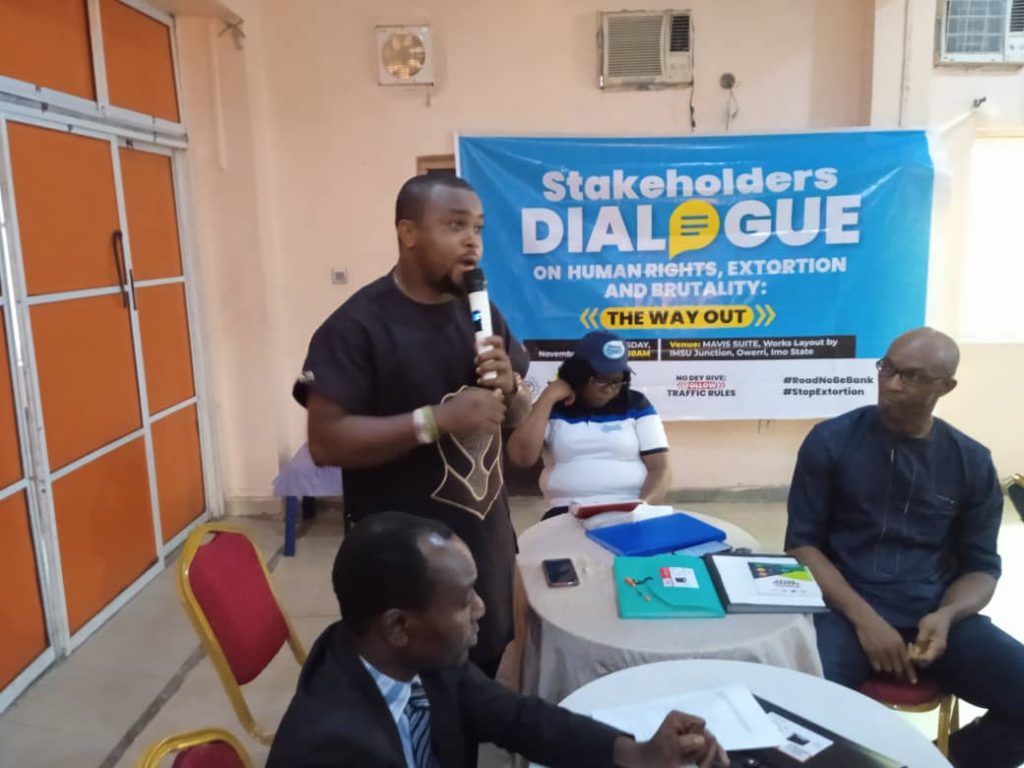
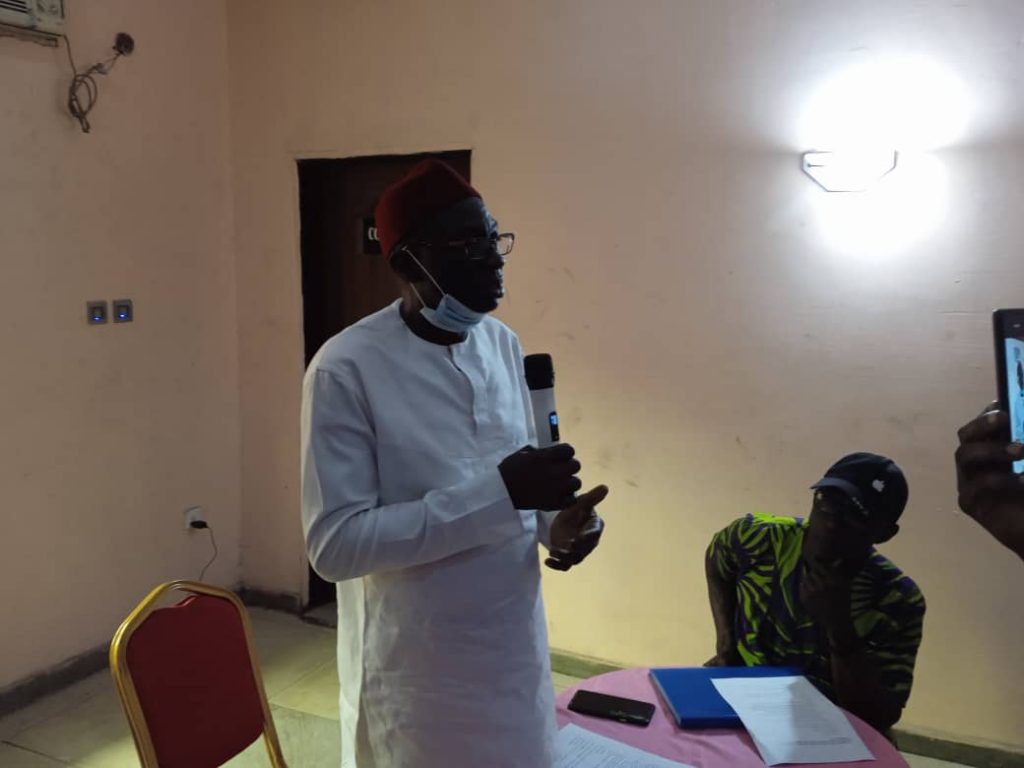
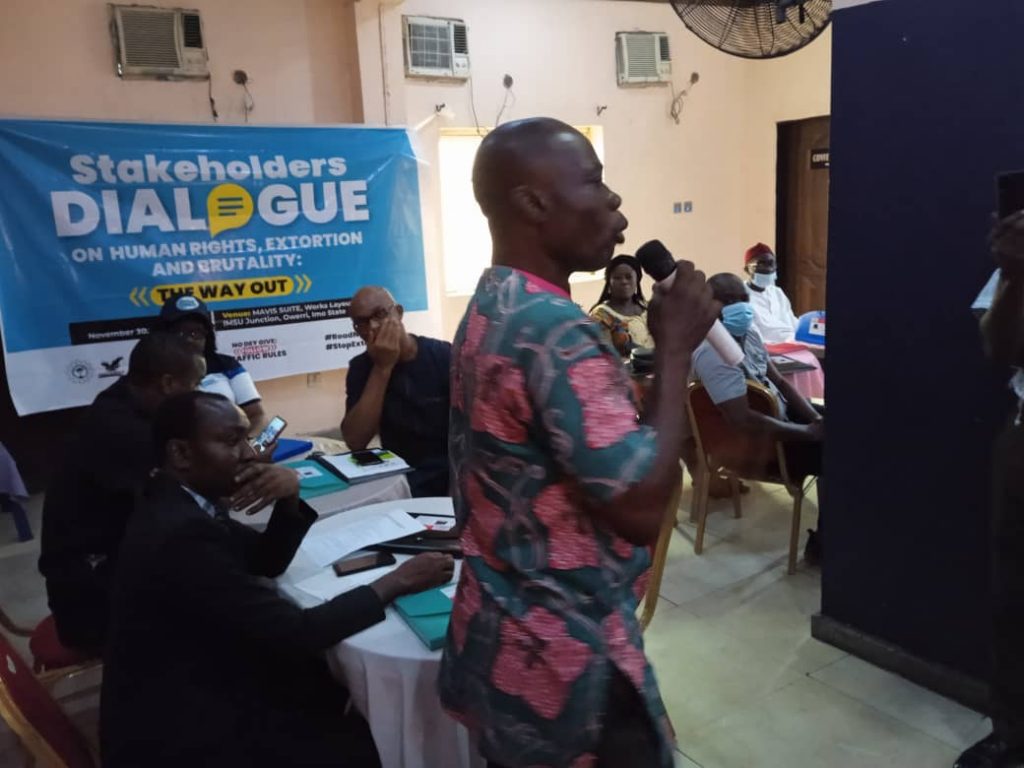
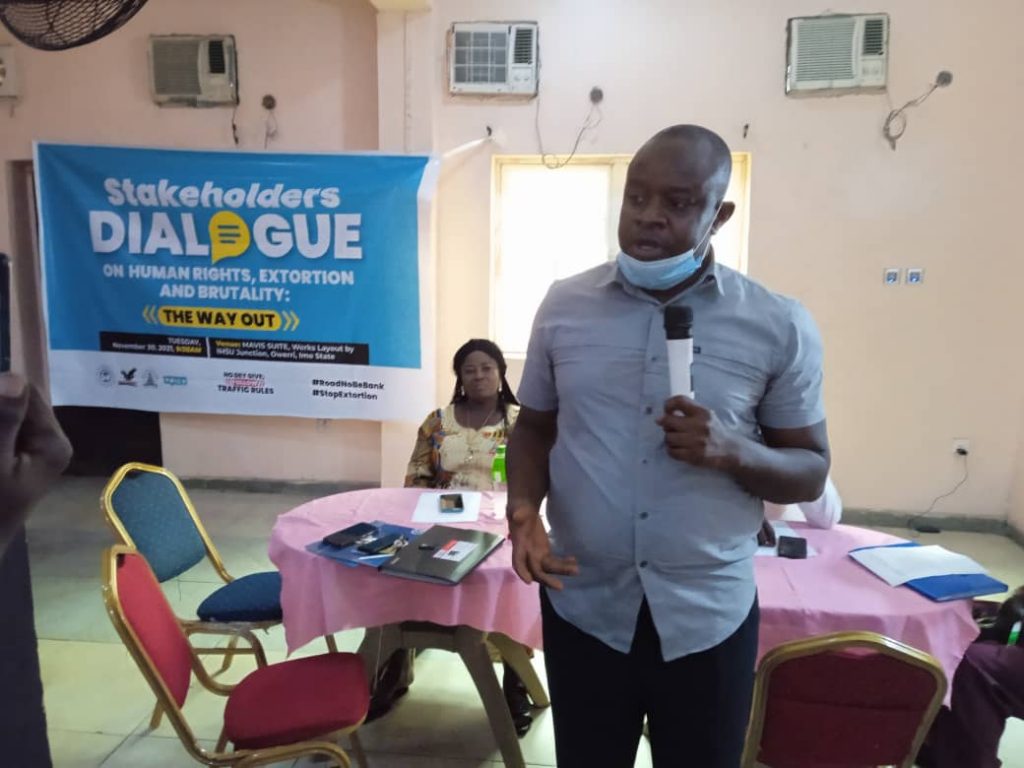
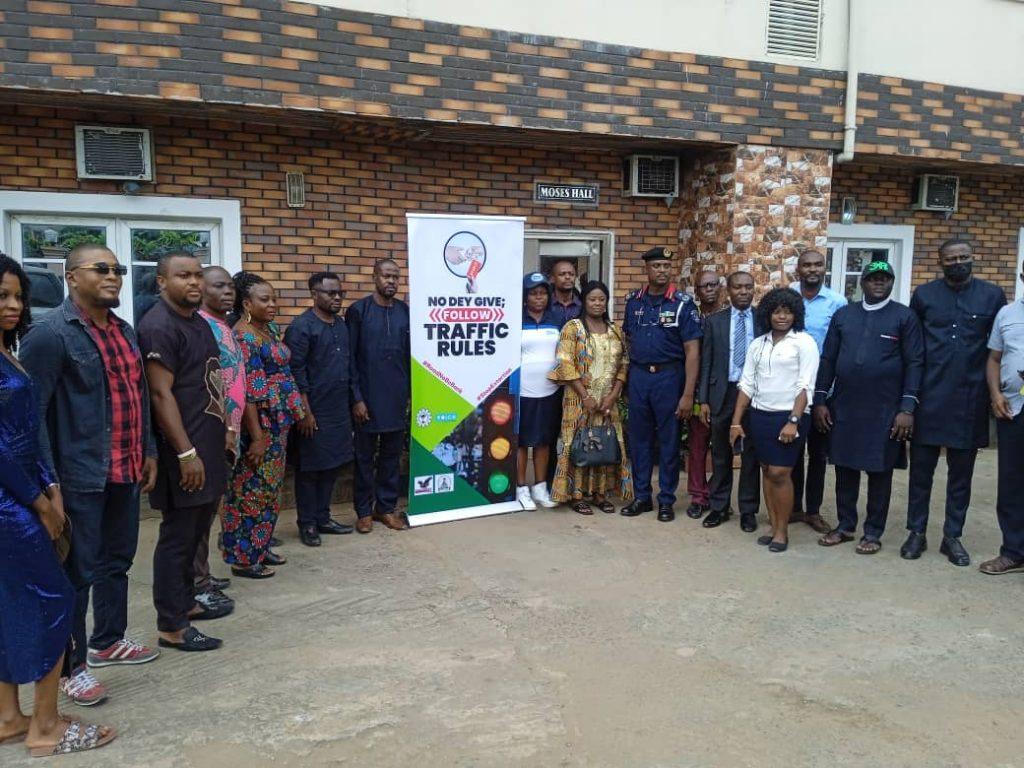
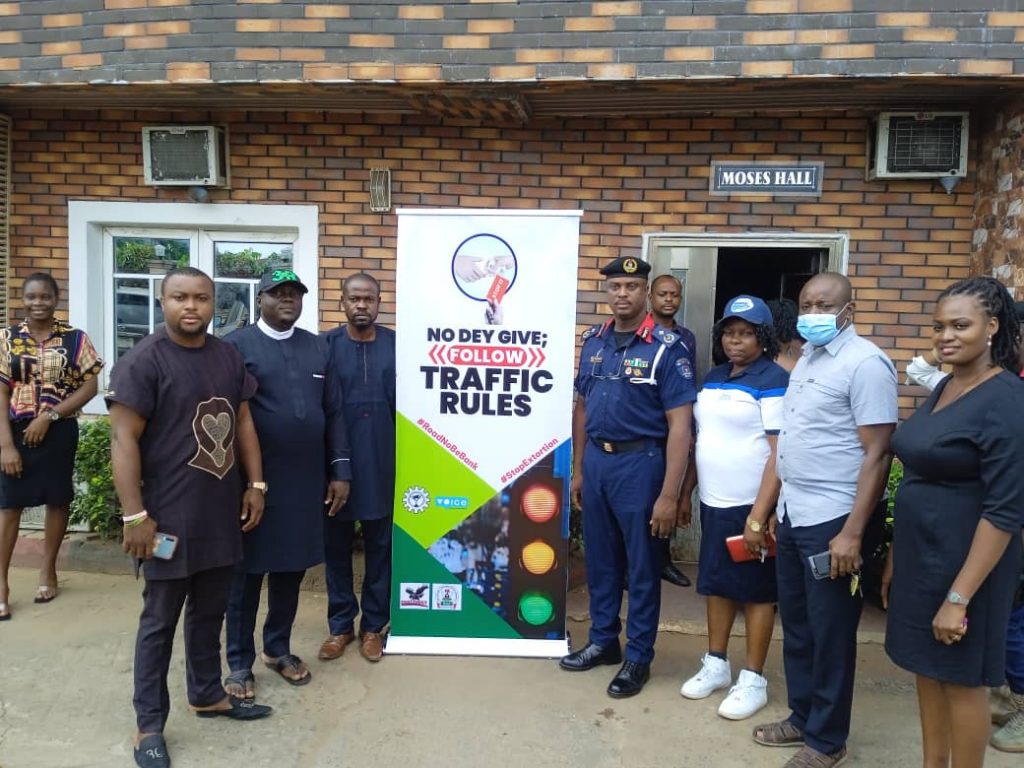
A WordPress Commenter
Hi, this is a comment.
To get started with moderating, editing, and deleting comments, please visit the Comments screen in the dashboard.
Commenter avatars come from Gravatar.